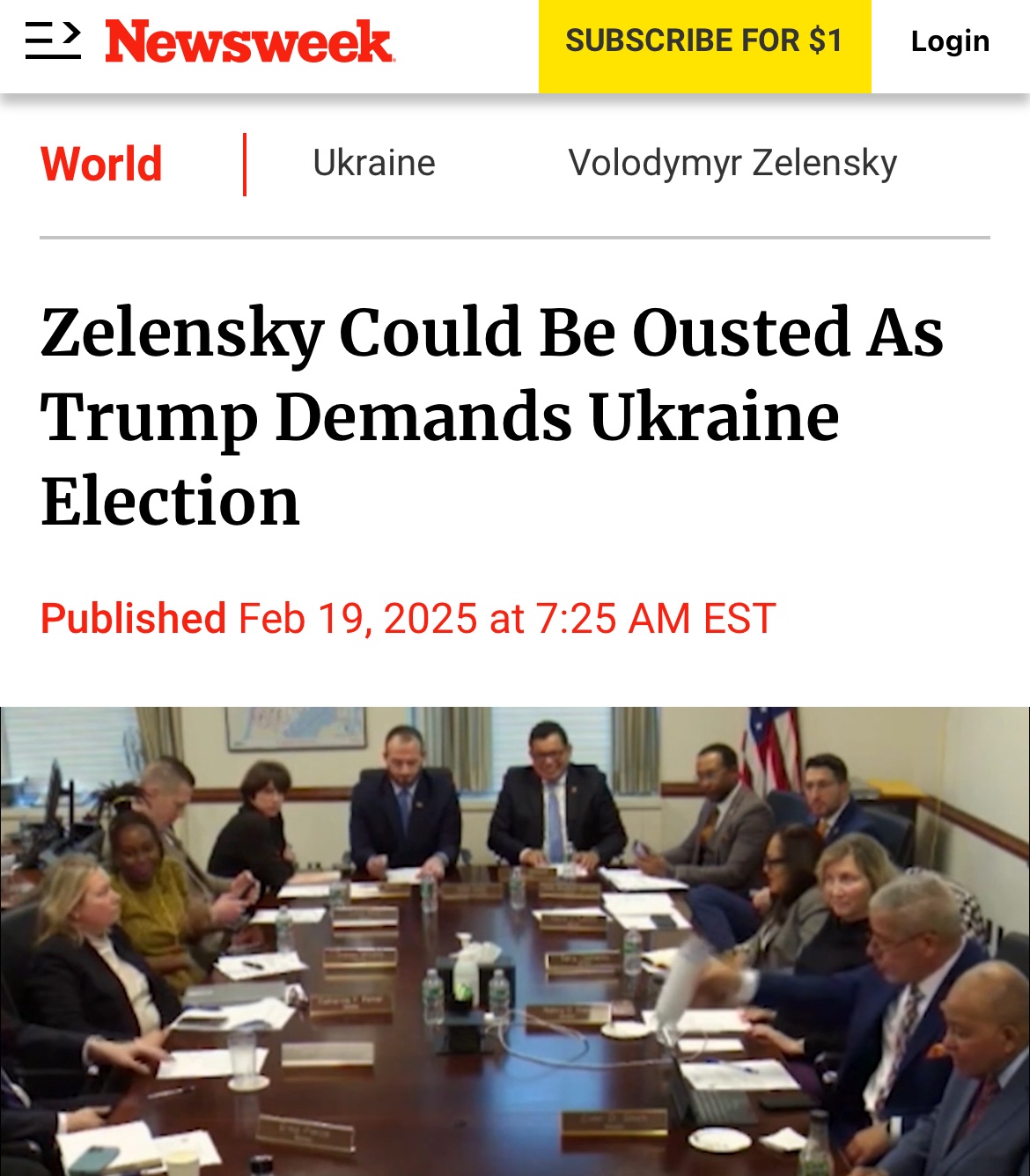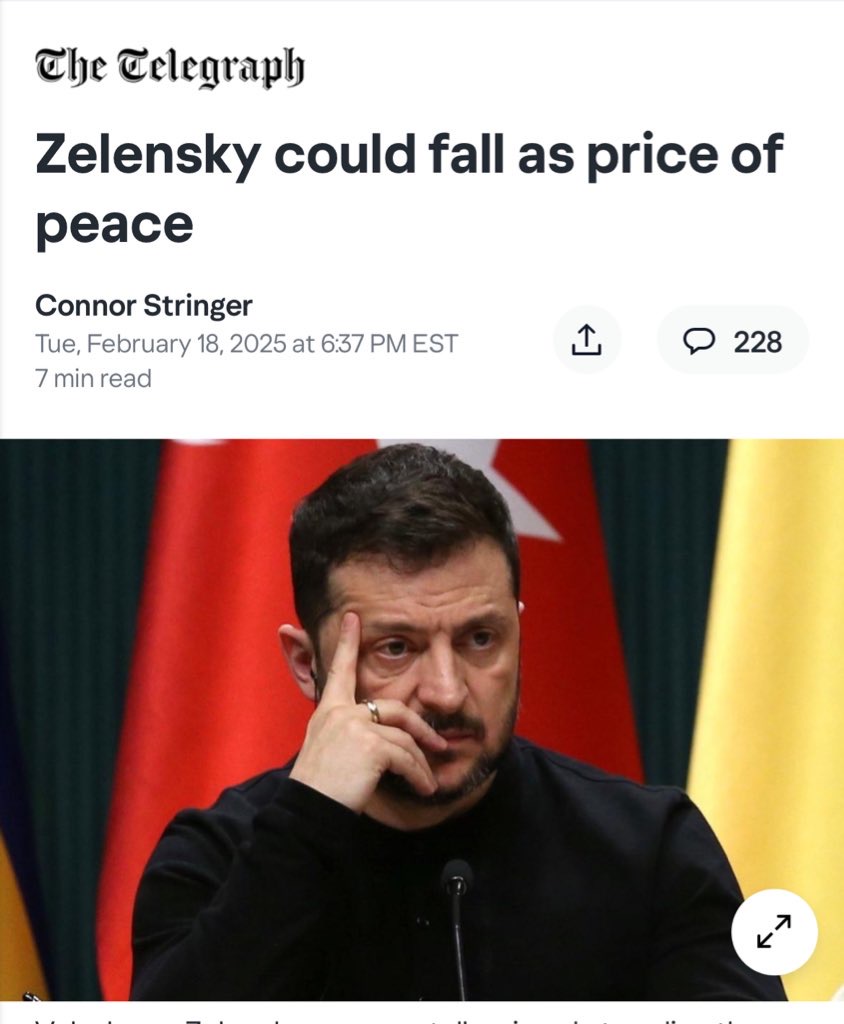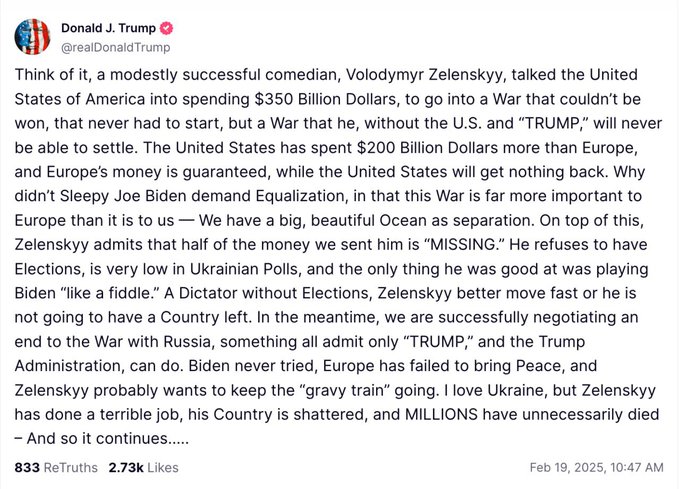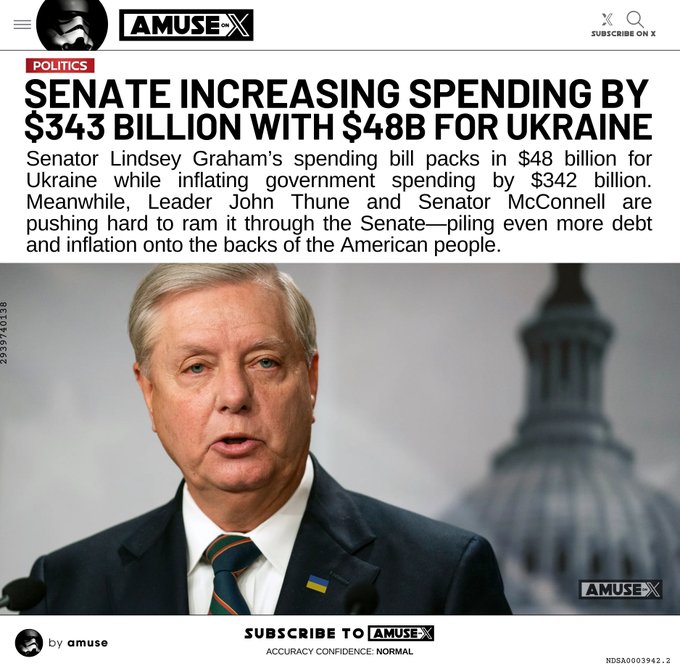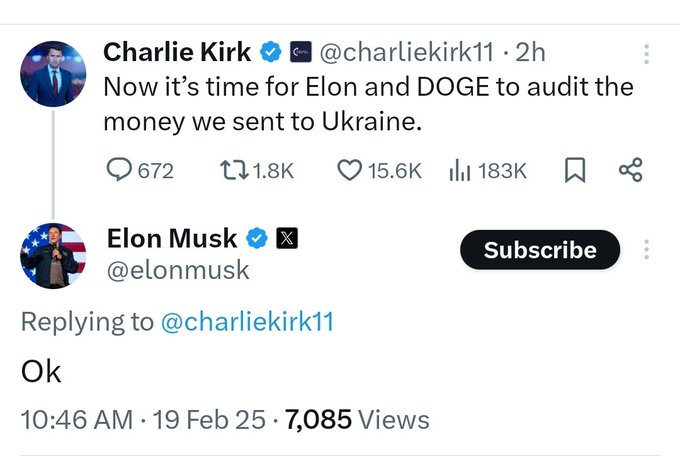You are using an out of date browser. It may not display this or other websites correctly.
You should upgrade or use an alternative browser.
You should upgrade or use an alternative browser.
Ukraine news today
- Thread starter Diogenes
- Start date
Diogenes
Nemo me impune lacessit
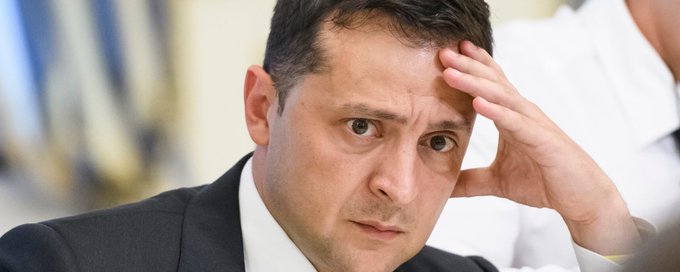
Zelenskyy’s "European Army": Killed in the Crib
As what could be cautiously termed as a weirdly played “divide and rule” attempt to rally Europe against its primary protector, the United States of America, it had a very crusading feel to it: a pan-European force, marching in unison, spilling European blood, to repel evil and retake occupied land.
Weird, as Russia objectively has always been a historic European great power—even under the Marxists, an ideology as European as it could be—so the entire gimmick of repelling foreign invaders was somewhat rhetorically jarring.
Zelensky ended with a TV interview for the American audience, in which he categorically rejected the idea that he would ever accept a U.S.-brokered peace.
That meant—he was crystal clear for the American audience—that if the U.S. and Russia negotiated a peace where there are some territorial concessions but overall the line of contact is frozen in a ceasefire and a DMZ is created, and if American funding were consequently to stop, Ukraine will not accept the deal and would continue as-is.
A curious warning for the Trump administration to remember and plan for.
Not that it mattered. Within moments, the “EU army” was shot down, despite ferocious Churchill LARPing by members of the NATO escalation caucus.
In an interview with the Financial Times, Macron said that the idea of deploying a huge force is “far-fetched”: “We have to do things that are appropriate, realistic, well thought, measured and negotiated.”
Poland followed. “If you understand by it the unification of national armies, it will not happen,” Poland's Radek Sikorski immediately clarified.
For what it’s worth, Zelenskyy’s vision was certainly bold. In a way this was also an ancient lesson in realpolitik for the U.S., which ensured the survival of the Ukrainian state for three years.
In international relations, protectorates will never love the benefactor; they will be there only as long as there are benefits.
Clients will always want more, and when not given, will resort to means ranging from emotional blackmail to attempts to divide and rule.
Subservience isn’t respect or affection. What is true for Ukraine is true for Europe and the U.S.
Reportedly, after the Vance-Hegseth one-two punch, the U.S. has asked all European capitals in a formal letter about how much they are actually willing to do.
The phenomenal Hegseth speech in Brussels was about “shifting conventional deterrence” to Europe, but this particular move puts all cards on the table and stops all the empty grandstanding of the last few years.
Asking European states for their actual force posture and plan including a pledge of continuation if things go south, without a security guarantee of the NATO Article 5, is a good policy.
It is clear, unambiguous, and it shows who genuinely holds all the power in this equation. It clarifies the total disconnect between European posture, resolve, and European rhetoric.
“There is a fundamental issue we need to recognise,” said Shashank Joshi, the defense editor of the Economist. “A serious Euro force in Ukraine needs US enablement, air defense, air cover & ISR. Those things - enablers, air def, air power & intel - are exactly what many in the Trump admin want to shift from Europe to the Indo-Pacific.”
The central paradox of Euro-American relations is that some Eurocrats, especially from the Baltics, started to believe their own 30 years of propaganda, that the EU is a result of organic peaceful integration with a resultant new Homo Europae, rather than of American hegemonic peace.
The greatest flaw in that same postwar order is the total eradication of the idea that power determines agency.
Egalitarianism, whether in society or in international relations, isn’t organic.
Someone has to put the thumb (that is, money or troops, or both) on the scale. In this case, that is the U.S., and the U.S. is done with it.
Barring American presence, Europe has no coherent entity or interest.
As a result, despite Zelenskyy’s Pope Urban act, the central paradox of American hegemony over Europe will remain for the near foreseeable future.
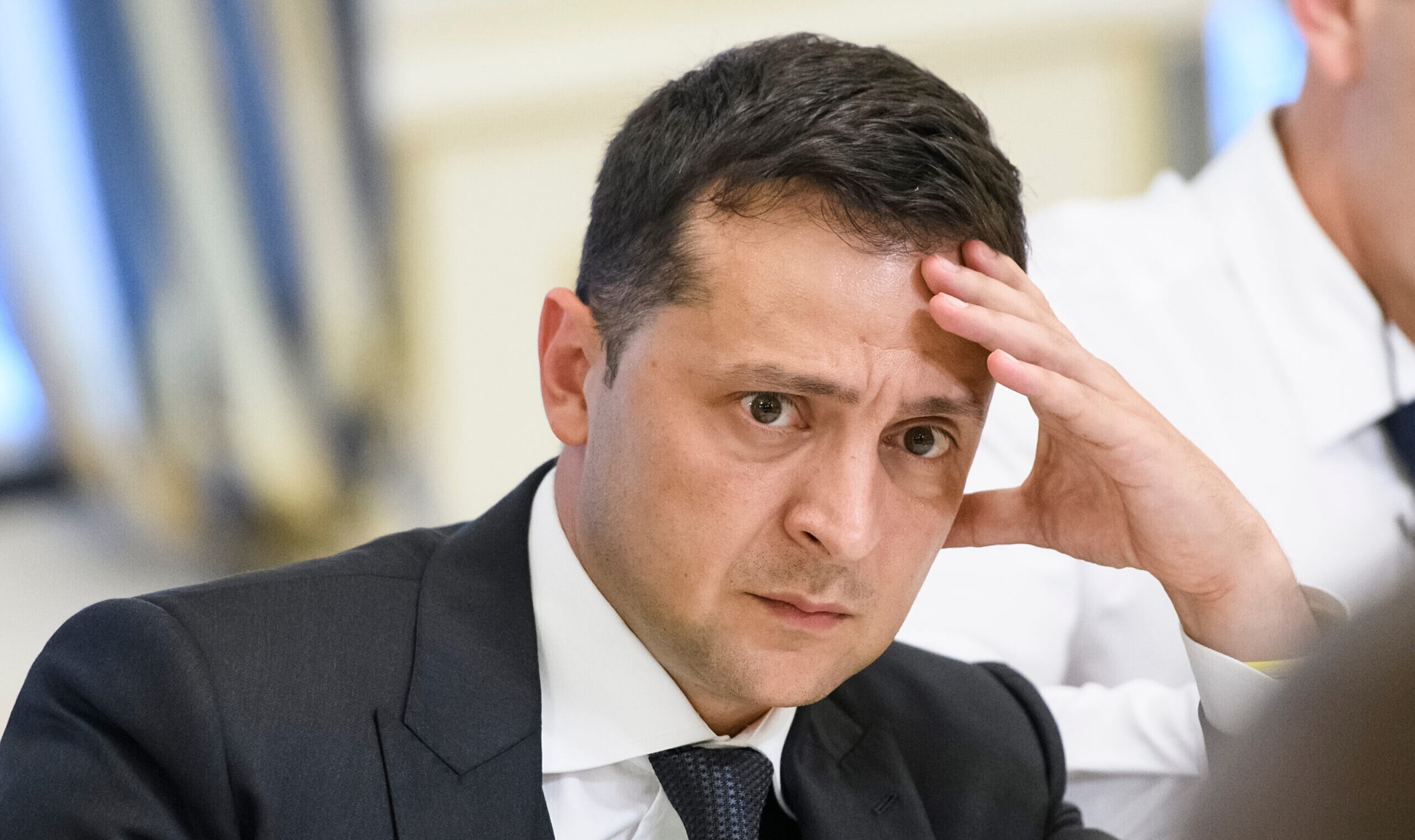
Zelensky’s European Army: Killed in the Crib
The Ukrainian president, however, gave a glimpse of the future.
Diogenes
Nemo me impune lacessit
Europe’s War Party Takes Aim at Trump
Trump’s announcement of upcoming talks with his Russian counterpart Vladimir Putin to end the war in Ukraine unleashed a torrent of alarmist reactions, some borderline hysterical, from the usual hawkish quarters in Europe and America.
Trump should ignore these reactions and press ahead with his peace initiative.
Several European politicians feigned surprise at Trump’s phone conversation with Putin last week and expressed dismay that they hadn’t been consulted.
Germany’s Foreign Minister Annalena Baerbock stated that the call came “out of the blue”—as if she hadn’t caught wind of Trump’s long-stated position in favor of negotiating with Putin to resolve the Ukraine war.
Her counterparts from the UK, the Netherlands, Poland and other countries joined her in insisting that no deal on Ukraine can be made over the heads of Ukrainians and Europeans.
The former prime minister of Sweden, Carl Bildt, set the tone by implying, not too subtly, that Trump is a modern-day Chamberlain, and that his peace initiative will lead to another “Munich,” a tired trope with which the hawks always try to discredit any talks with adversaries as acts of dishonorable appeasement.
Though clichéd, the over-wrought parallels with Chamberlain’s appeasement toward Hitler are serious and in some quarters effective.
They are designed to paint Trump as a weakling and a dupe who will inevitably be played by Putin. The only way to prevent that, in this logic, is to push Trump to desist from the pursuit of serious negotiations with Moscow even before they have started and revert to a default maximalist stance.
The comments last week from Secretary of Defense Pete Hegseth suggesting that Ukraine will not join NATO and will have to accept a loss of captured territories as a price for peace further incensed politicians on both sides of the Atlantic.
A number of senior Democrat lawmakers and the EU High Representative for Foreign Affairs Kaja Kallas, among others, accused Trump and Hegseth of giving up leverage before talks even started. Kallas, by vowing that Europe would obstruct the implementation of U.S. concessions, encouraged Ukraine to reject Hegseth’s proposal.
Kiev may be persuaded by such arguments, but Washington should be confident in the legitimacy of its new approach.
To begin with, the EU had a chance to launch its own peace initiative way ahead of the Trump administration. The rationale for such an initiative, from a European point of view, was and is strong.
While Ukrainians are fighting admirably, the long-term battlefield trajectory is favorable to Russia.
Moreover, there is increased war fatigue among not just Ukrainians but across the continent, with a majority of Europeans supporting a negotiated end to the war.
Resolving the war, especially if accompanied by sanctions relief on Russian energy, would yield considerable economic dividends, boosting European competitiveness and freeing up resources for Europe’s cherished welfare model.
Yet since the Russo–Ukrainian War began, the only European leader who consistently spoke in favor of peace negotiations with Russia—Hungarian Prime Minister Viktor Orban—has been ridiculed and ostracized for allegedly overstepping his boundaries.
Orban has long been at loggerheads with Brussels over domestic governance issues, but the Ukraine issue intensified the rivalry. While Orban has tried to open a space for diplomacy between Moscow and the West, none of the mainstream, “respectable” EU leaders dared to envisage any path forward other than a relentless and quixotic pursuit of a total military victory over Russia.
These leaders are in no position to lecture Trump, since their own policies have been such an abject failure.
Nor do accusations that the U.S. has given up leverage over Russia before the talks hold water.
Hegseth’s statement that Ukraine won’t be recovering all its territories “is not a concession to Russia but a concession to reality,” as foreign policy analyst Stephen Wertheim recently put it.
The same applies to the White House’s opposition to Ukraine joining NATO as part of a peace deal.
Critics of Trump should explain why Putin would even contemplate negotiations over something—Ukraine’s potential NATO membership—that he waged war to prevent in the first place.
With the battlefield winds blowing in Putin’s favor, what is there to stop him from pressing for further territorial advantage, as indeed his own War Party is pushing him to do?

Europe’s War Party Takes Aim at Trump
The U.S. president should press ahead in pursuit of Ukraine peace.
Diogenes
Nemo me impune lacessit
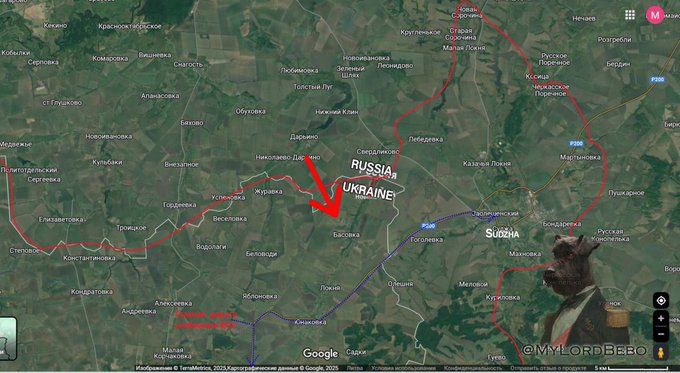
The Russian army entered the Sumy region!
Russia entered Novenkoe from the Sverdlikovo side (and will probably go on to Basovka), building on the success Russia achieved the day before.
The meaning of this is straightforward. Firstly, Russian army is thus bypassing the Ukrainian position, which is very inconvenient for assault.
And here Russia can also physically reach the main supply route of the Sudzhan group of the Ukrainian Armed Forces.
Which will speed up its encirclement first, and then its defeat.
That is, for now, of course, this is not a full-fledged entry into the Sumy region with large forces. But it is obvious that after the re-capture of the territory of the Kursk region, a security zone will be created here.
https://x.com/MyLordBebo/status/1892231021598261292
How the fuck does Daffy Donald, Putin's stooge have the power to demand elections in sovereign countries? You should evaluate his statements before making threads out of them.
Diogenes
Nemo me impune lacessit
How the fuck does Daffy Donald, Putin's stooge have the power to demand elections in sovereign countries? You should evaluate his statements before making threads out of them.
I'll post what I like. If you think I've posted something I shouldn't, report the post.

You proved that many times. You are not posting well due to your blind-ass Trumpian beliefs.I'll post what I like. If you think I've posted something I shouldn't, report the post.
Diogenes
Nemo me impune lacessit
You proved that many times. You are not posting well due to your blind-ass Trumpian beliefs.
You loved my posts when I pretended to be a Harris advocate, didn't you?
Diogenes
Nemo me impune lacessit
Ukrainians respond to Trump’s demand to repay the $250 billion given to Zelenskyy, declaring, “We don’t owe you a single cent, you bastards!”
View: https://x.com/CNviolations/status/1892251549675770191
View: https://x.com/CNviolations/status/1892251549675770191
Diogenes
Nemo me impune lacessit
Trump is right. Zelenskyy is a dictator.
FACTS:
FACTS:
- Elections in Ukraine have been suspended since Zelenskyy decreed martial law in 2022.
- Zelenskyy banned 11 political parties.
- Zelenskyy stripped former members of parliament of their Ukrainian citizenship.
- Zelenskyy sanctioned and froze the assets of former President and opposition member Petro Poroshenko, banning him from withdrawing funds for “national security” reasons.
Diogenes
Nemo me impune lacessit

Trump’s take on Volodymyr Zelenskyy is spot on
Little Hitler is six years into a five-year term.
With no elections in sight, that screams "dictator".
Martial law, which he slapped on in 2022, conveniently keeps Zelenskyy in power while the ballot box gathers dust.
Zelenskyy’s ban on 11 political parties was a blatant move to silence dissent.
Stripping citizenship from ex-parliament members? That’s not democracy; that’s straight out of the authoritarian handbook.
And targeting Petro Poroshenko, a former president and opposition figure, by freezing his assets under flimsy “national security” excuses?
Pure thuggery.
The failed and corrupt Biden-Harris crew, though, ate it up. They funneled billions to Ukraine - in exchange for .... what?. Democrats love preaching about “defending democracy”, but they’re fine propping up a guy who’s trashing it.
Hypocrisy at its finest.
Trump saw through this garbage. He's not fooled by Zelenskyy’s saintly PR act. The former administration’s obsession with Ukraine was a clown show, wasting American cash on a regime that’s anything but free.
Diogenes
Nemo me impune lacessit
Zelenskyy claimed Ukraine only received around $75 billion of the $177 billion in aid that was supposedly sent from the United States.
Where did our money go? Who is lying? We need a full audit of all our money that was sent to Ukraine.
View: https://x.com/libsoftiktok/status/1892283653176115280
Where did our money go? Who is lying? We need a full audit of all our money that was sent to Ukraine.
View: https://x.com/libsoftiktok/status/1892283653176115280
Diogenes
Nemo me impune lacessit
U.S. National Security Advisor Mike Waltz describing Trump’s recent comments on Ukraine: “What he said yesterday and today is, why hasn’t President Zelensky tried to end this war for the betterment of his country?”
View: https://x.com/visegrad24/status/1892286605513130130
View: https://x.com/visegrad24/status/1892286605513130130
moon
Satire for Sanity

Trump’s take on Volodymyr Zelenskyy is spot on
Little Hitler is six years into a five-year term.
With no elections in sight, that screams "dictator".
Martial law, which he slapped on in 2022, conveniently keeps Zelenskyy in power while the ballot box gathers dust.
Zelenskyy’s ban on 11 political parties was a blatant move to silence dissent.
Stripping citizenship from ex-parliament members? That’s not democracy; that’s straight out of the authoritarian handbook.
And targeting Petro Poroshenko, a former president and opposition figure, by freezing his assets under flimsy “national security” excuses?
Pure thuggery.
The failed and corrupt Biden-Harris crew, though, ate it up. They funneled billions to Ukraine - in exchange for .... what?. Democrats love preaching about “defending democracy”, but they’re fine propping up a guy who’s trashing it.
Hypocrisy at its finest.
Trump saw through this garbage. He's not fooled by Zelenskyy’s saintly PR act. The former administration’s obsession with Ukraine was a clown show, wasting American cash on a regime that’s anything but free.
Biden, yes. Harris ?
Diogenes
Nemo me impune lacessit
Biden, yes. Harris ?
Kamala Harris was assigned a role concerning Ukraine by Joe Biden. She was tasked with representing the United States at pivotal international gatherings related to the Ukraine crisis as part of her increasingly visible foreign policy role in the Biden administration. Harris attended the Munich Security Conference in February 2022, just before Russia's full-scale invasion of Ukraine, and she has continued to engage with Ukrainian leadership and international allies on the matter. She was also sent by Biden to the Summit for Peace in Ukraine in Switzerland in June 2024, where she announced additional U.S. assistance for Ukraine. Her role has included leading diplomatic efforts, meeting with Ukrainian President Volodymyr Zelenskyy, and reaffirming U.S. commitment to supporting Ukraine against Russian aggression.
@Grok
Diogenes
Nemo me impune lacessit
Reminder:
Zelenskyy was named in the Pandora Papers as having extensive wealth hidden offshore. The Pandora Papers revealed that Volodymyr Zelenskyy and his close associates were beneficiaries of a network of offshore companies, particularly those based in the British Virgin Islands, Cyprus, and Belize. These companies were used to buy expensive properties in London among other assets.
The Azov Battalion got away with violence against ethnic Russians.
An estimated 650,000 men fled Ukraine because they didn't want to fight.
Zelenskyy was named in the Pandora Papers as having extensive wealth hidden offshore. The Pandora Papers revealed that Volodymyr Zelenskyy and his close associates were beneficiaries of a network of offshore companies, particularly those based in the British Virgin Islands, Cyprus, and Belize. These companies were used to buy expensive properties in London among other assets.
The Azov Battalion got away with violence against ethnic Russians.
An estimated 650,000 men fled Ukraine because they didn't want to fight.

